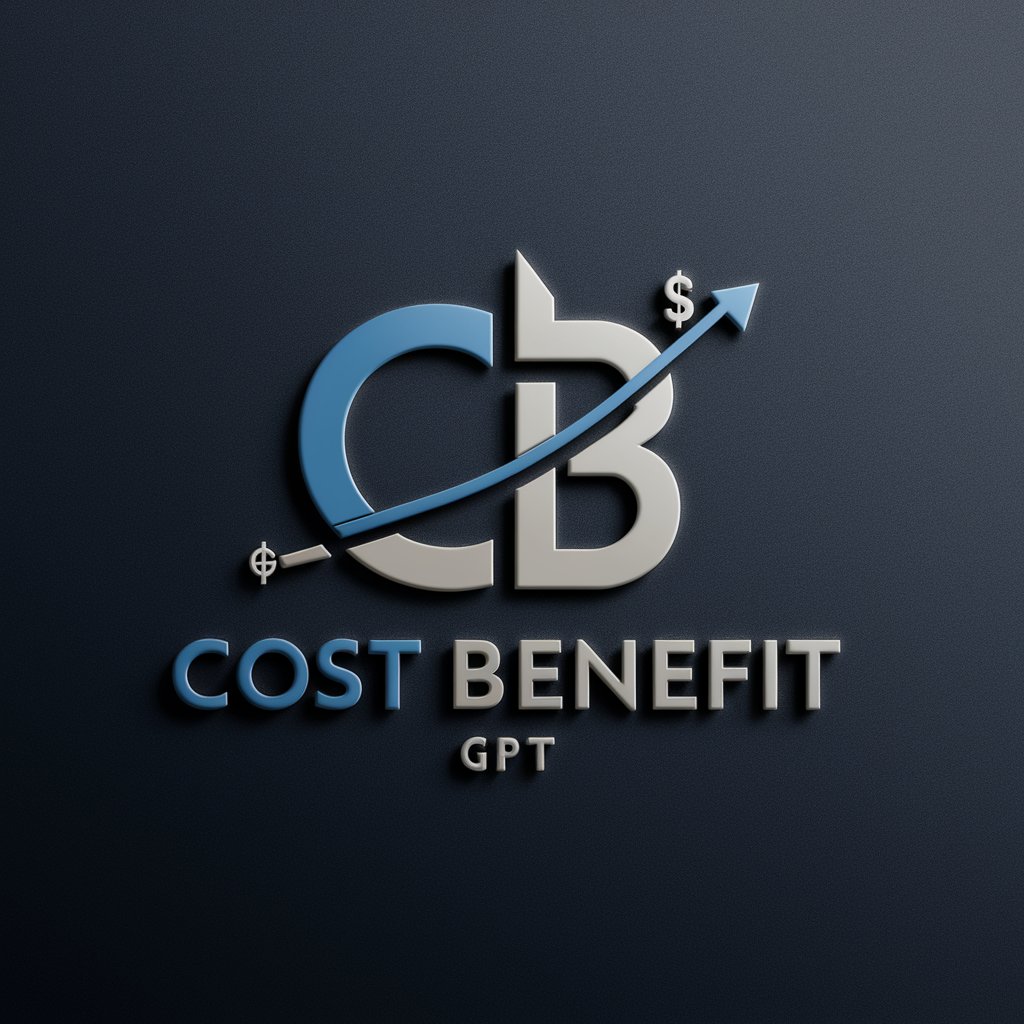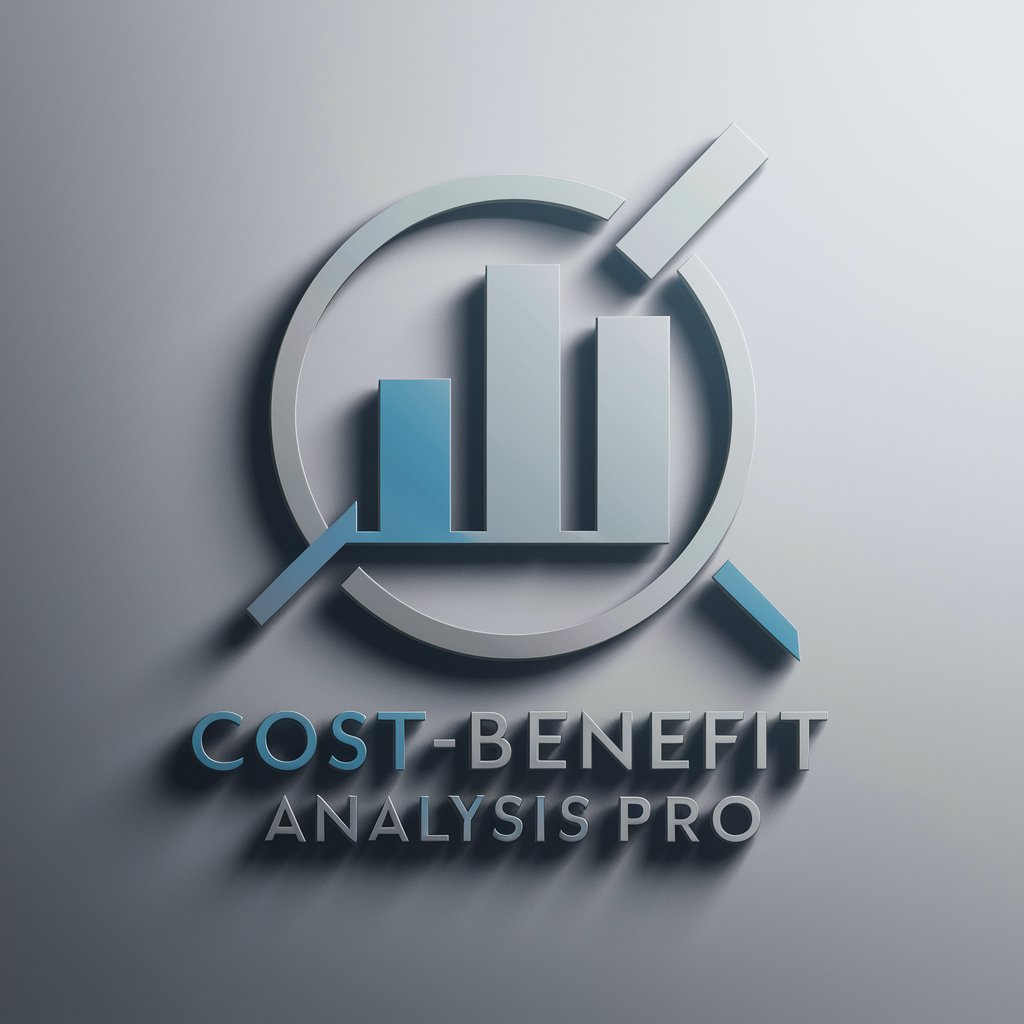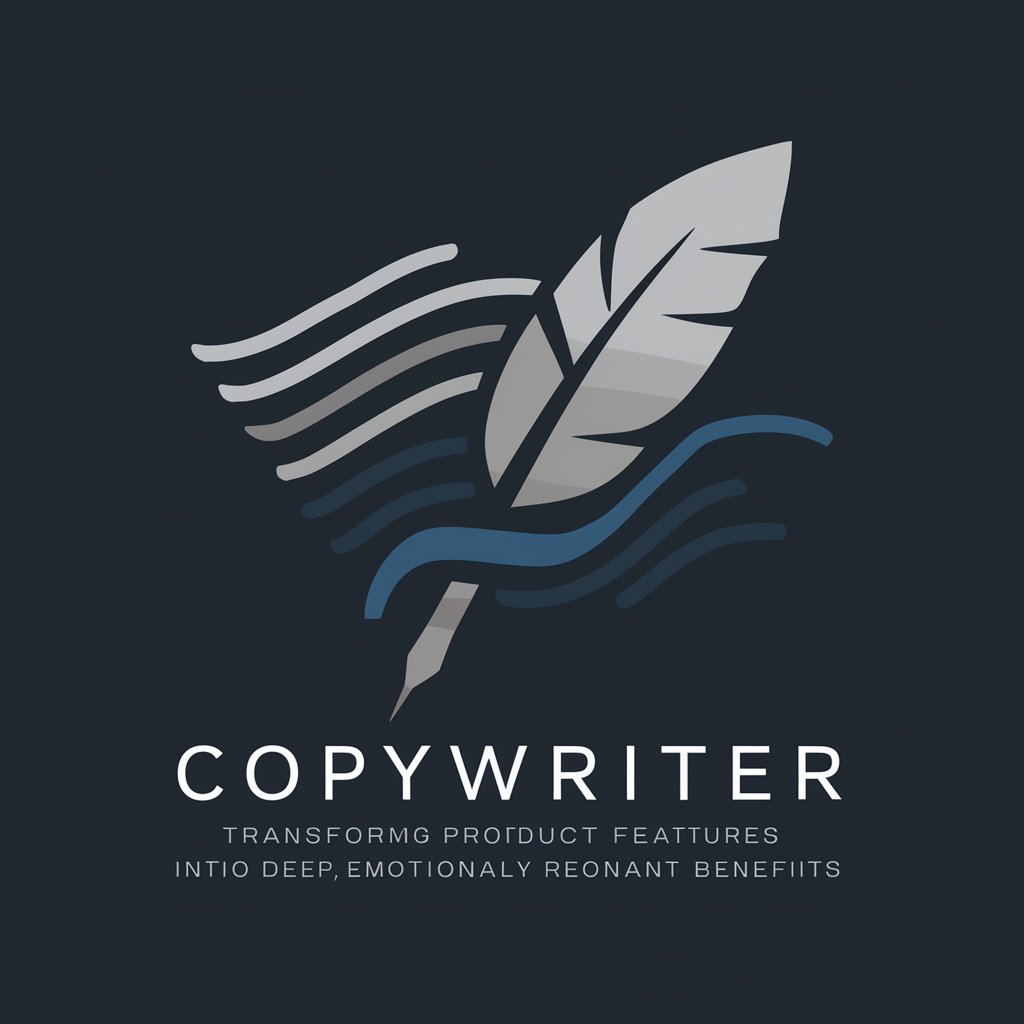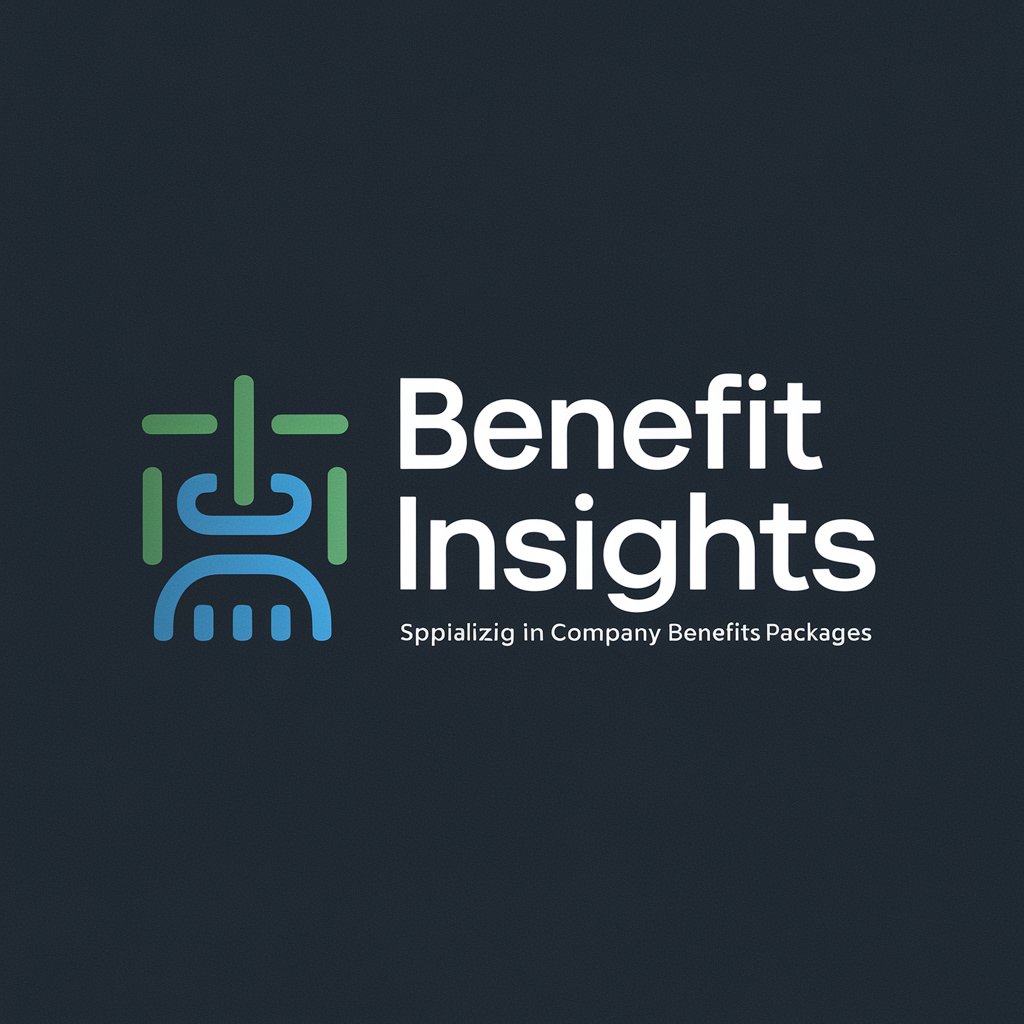Cost Benefit GPT - Financial Decision Analysis

Welcome! Let's dive into your cost-benefit analysis needs.
AI-powered Financial Insight
Can you provide a cost-benefit analysis for launching a new product line?
What are the financial implications of expanding our business internationally?
How can we evaluate the cost-effectiveness of implementing new technology in our operations?
What should we consider when analyzing the benefits of a potential merger or acquisition?
Get Embed Code
Introduction to Cost Benefit GPT
Cost Benefit GPT is designed as a specialized tool to assist users in performing detailed cost-benefit analyses for various business decisions, investments, and projects. This GPT model aids in calculating the financial impacts of decisions by analyzing costs versus benefits, thereby providing a clearer picture of potential returns and risks. Its purpose is to help users make more informed decisions based on quantitative and qualitative data. For instance, if a company is considering upgrading its technology infrastructure, Cost Benefit GPT can provide a breakdown of the initial investment costs, ongoing operational costs, and anticipated benefits such as efficiency gains and cost savings over time. Powered by ChatGPT-4o。

Main Functions of Cost Benefit GPT
Financial Analysis
Example
Estimating the Return on Investment (ROI) for a new product launch.
Scenario
A tech company plans to launch a new smartphone model. Cost Benefit GPT can analyze projected production costs, marketing expenses, expected sales volumes, and pricing to estimate the ROI, helping the company decide if the product launch is financially viable.
Risk Assessment
Example
Evaluating potential risks associated with entering a new market.
Scenario
A retail chain considers expanding into a new geographic market. Cost Benefit GPT assesses the investment required for market entry, potential economic and regulatory risks, and the expected time to profit, providing a detailed risk-benefit analysis.
Comparative Analysis
Example
Comparing multiple investment opportunities.
Scenario
An investment firm evaluates several real estate investments. Cost Benefit GPT can compare each property’s purchase cost, expected maintenance costs, rental income projections, and market growth potential to determine which investment offers the best financial returns.
Ideal Users of Cost Benefit GPT
Business Executives
CEOs, CFOs, and other senior executives can utilize Cost Benefit GPT to evaluate the financial implications of strategic decisions, such as mergers, acquisitions, or capital investments, ensuring decisions are backed by comprehensive financial analysis.
Small Business Owners
Small business owners benefit from Cost Benefit GPT by gaining access to detailed financial analyses that help them make informed decisions about expansions, new product lines, or operational changes without needing to hire external consultants.
Financial Analysts and Advisors
These professionals use Cost Benefit GPT to streamline their workflow in creating detailed financial models and analyses for their clients, enhancing the precision of their recommendations and saving time on complex calculations.

Guide to Using Cost Benefit GPT
Access Platform
Visit yeschat.ai to try Cost Benefit GPT for free without needing to log in or subscribe to ChatGPT Plus.
Identify the Scenario
Determine the specific scenario or decision for which you need a cost-benefit analysis. This could range from business investments to project feasibility.
Provide Details
Input all relevant data about your scenario, including financial figures, projected outcomes, and any constraints or priorities.
Interact and Refine
Engage with the AI by asking questions or requesting adjustments to your analysis based on different assumptions or additional information.
Review and Apply
Critically review the detailed cost-benefit analysis provided. Use this data to inform decisions or to support further strategic planning.
Try other advanced and practical GPTs
Benefit Guide UK
Empowering Benefit Decisions with AI

Health Benefit Bot
Simplifying health insurance with AI

Social Benefit Navigator
Navigating Your Benefits, Powered by AI

Benefit Finder
AI-Powered Benefits Discovery

Cost-Benefit Analysis Pro
AI-powered decision-making insight.

Benefit Buddy
Your AI-powered guide to benefits

Deep Benefit
Discover Deeper Connections

Benefit Buddy
Decoding Insurance, Empowering You

Benefit Navigator
Navigate Benefits Seamlessly with AI

Benefit Insights
Unlock insights with AI-driven analysis.

Daily Reflection
Reflect, Grow, and Transform with AI

Family Helper
Streamlining family life with AI.

Frequently Asked Questions About Cost Benefit GPT
What types of decisions can Cost Benefit GPT analyze?
Cost Benefit GPT can analyze a variety of decisions, including business investments, new project evaluations, policy implementations, and technology adoptions. It helps users assess the financial implications and potential outcomes of their decisions.
How accurate is the analysis provided by Cost Benefit GPT?
The accuracy largely depends on the data provided by the user. With detailed and accurate inputs, the AI generates reliable and realistic projections, balancing various financial and strategic factors.
Can Cost Benefit GPT handle multiple scenarios simultaneously?
Yes, it can compare multiple scenarios by analyzing each one's costs and benefits, helping users to see side-by-side comparisons and make informed decisions based on comprehensive data analysis.
Does Cost Benefit GPT require specialized knowledge to use?
No specialized knowledge is needed. Users should have a basic understanding of their needs and the data they input, but the tool is designed to be user-friendly and accessible to a broad audience.
What should I do if the analysis does not meet my expectations?
If the analysis does not meet your expectations, consider revising the input data or assumptions. You can also engage with the AI to explore alternative scenarios or request additional insights into specific areas of interest.
